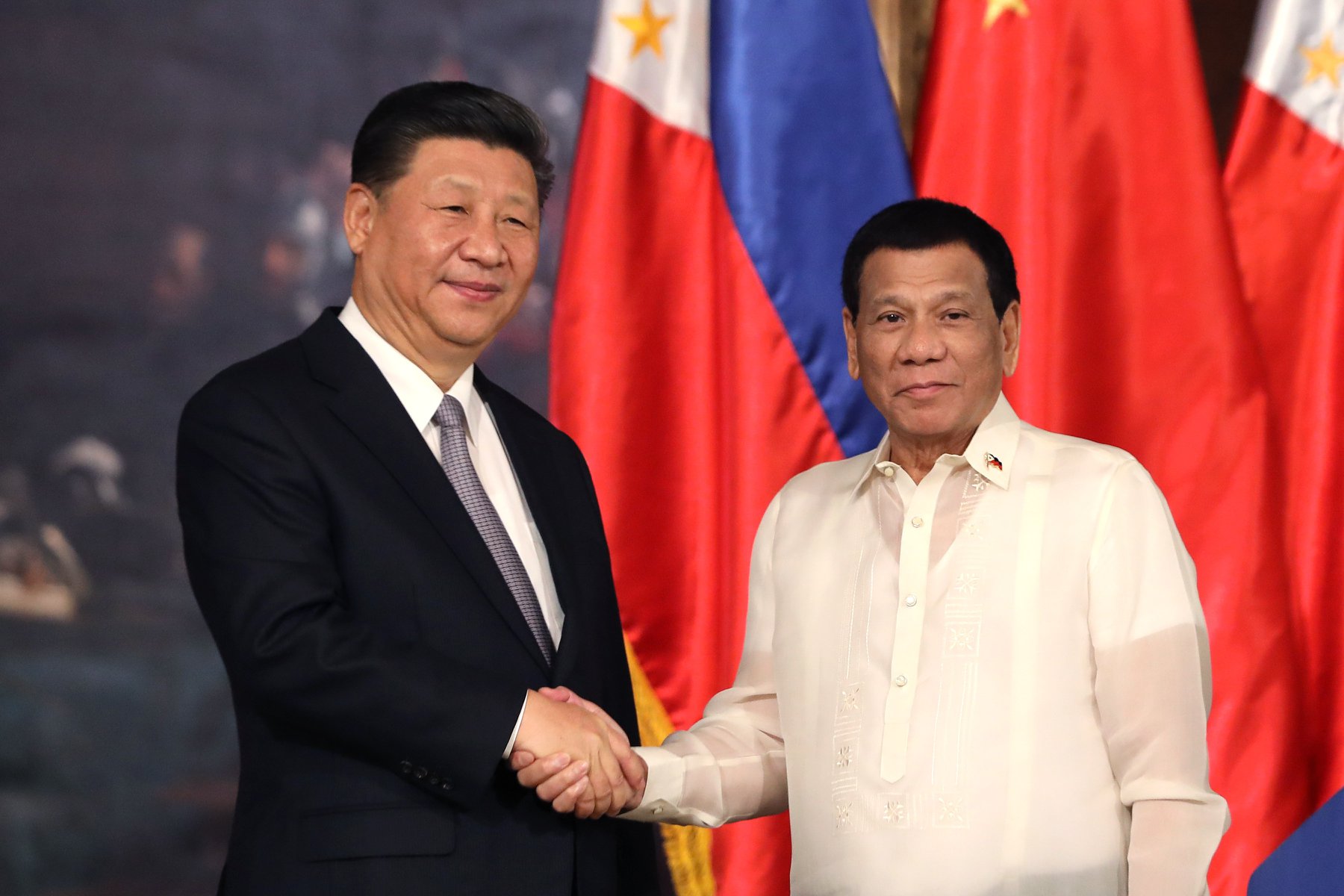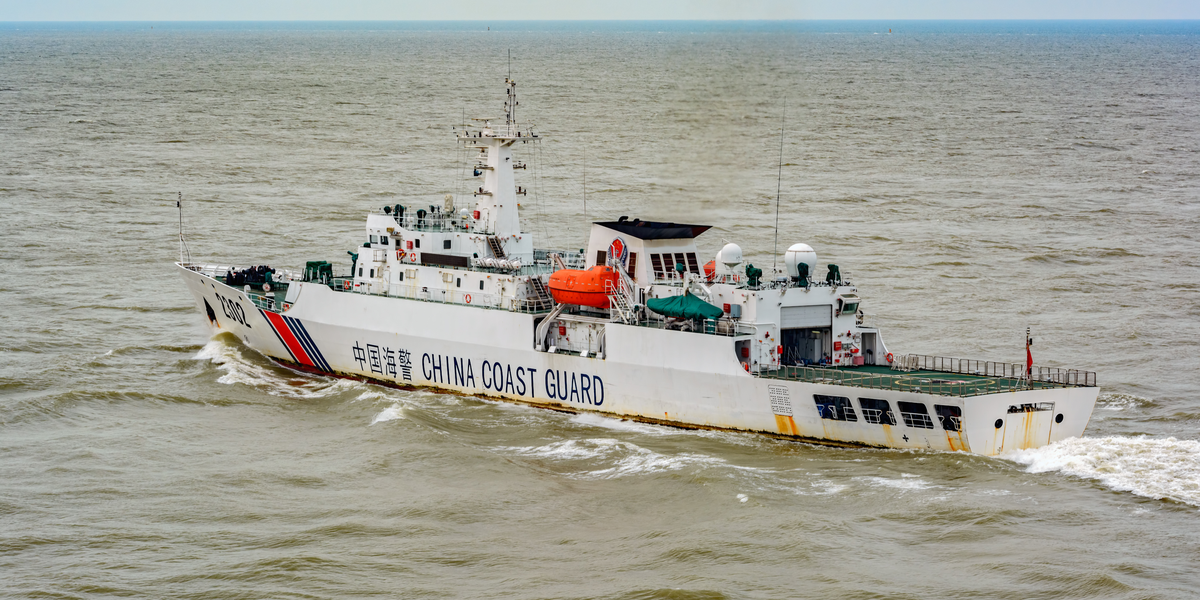#SONA2021
Foreign policy under Duterte: The 'Chinese Dream' and the dire consequences of an appeasement policy
From a security standpoint, the US-China strategic competition is no longer the only factor defining the Indo-Pacific. The emergence of new security challenges and the confluence of economic and strategic factors have changed the power dynamics in the region.
As the global community continues to gravitate toward the Indo-Pacific, states have become more aware of its evolving security architecture and possible implications on their economic development and national interests. The complexity of China's rise and the intersecting foreign policy agenda of other major powers, including the United States and Japan, have also redefined the significance of multilateralism and alliances in maintaining the balance of power in the region.
China has viewed the region's multipolarity as destabilizing and inimical to its vision of a new international order.
During the 100th founding anniversary of the Chinese Communist Party (CCP), President Xi Jinping delivered a strong message, stating his opposition to hegemony and power politics.
Speaking in front of more than 70,000 people gathered at Tiananmen Square, he said that any foreign force that would attempt to bully, oppress and subjugate China would find themselves colliding with "a great wall of steel forged by over 1.4 billion Chinese people."

President Rodrigo Duterte and Chinese President Xi pose for a photo at Malacanang on Nov. 20, 2018 after a bilateral meeting. (Handout photo from Malacanang)
President Xi Jinping also expressed his willingness to accept suggestions and constructive criticisms but stressed that he would not tolerate any "sanctimonious preaching" from other countries.
The speech also emphasized the realization of the "Chinese Dream," a bold plan that seeks to rejuvenate the Chinese nation. In an attempt to restore the country to a position of power and leadership, China has actively pursued modernization across various sectors, including governance, education, culture, and technology.
President Xi Jinping has also pushed for reforms to accelerate the modernization of China's armed forces in order to protect its national sovereignty and advance its security and development interests.
President Xi Jinping also reaffirmed China's commitment to work with other countries to promote the shared values of peace, justice, and democracy. He said that China would also continue to open up its doors and champion cooperation over confrontation.
China's expansionist agenda in the West Philippine Sea and aggressive behavior in the region do not exemplify its commitment to peace.
However, the region's shift towards a multipolar system has prompted China to readjust its position in the Indo-Pacific. Accusing the US and its allies of interfering with the country's internal affairs, China has viewed the region's multipolarity as destabilizing and inimical to its vision of a new international order.
China's expansionist agenda in the West Philippine Sea and aggressive behavior in the region do not exemplify its commitment to peace.
Early this year, the Philippine government confirmed the alarming presence of more than 200 Chinese maritime militia vessels along the Julian Felipe Reef (Whitsun Reef), renewing tensions in the disputed waters. Despite repeated calls for China to withdraw its vessels, it has refused to cooperate and take responsibility for its illegal incursions in Philippine territory.
China insists that the Julian Felipe Reef is part of Nansha Quandao, an integral part of its territory. Nansha Quandao is the name given by Beijing to the Spratly Islands, a disputed territory claimed by China and other Southeast Asian states, including the Philippines.
The inaction of the Philippine government in the disputed waters is a result of President Rodrigo Duterte's appeasement policy toward China.
The Chinese Embassy in Manila has even released a statement urging government officials to avoid making "unprofessional remarks" over the Julian Felipe reef after being called out by the Secretary of National Defense Delfin Lorenzana. Until now, these maritime militia vessels are scattered in various features of the West Philippine Sea, posing a risk not only to the Philippines but also to the other states in the region.
Chinese aggression in the West Philippine Sea demonstrates the country's refusal to abide by international law. However, it also reflects a major component of the Chinese Dream, which includes expanding its military presence and influence in the region. Further, the inaction of the Philippine government in the disputed waters is a result of President Rodrigo Duterte's appeasement policy toward China.
Despite China's disregard of Philippine sovereignty and territorial rights, the Duterte administration has failed to effectively address the rising tensions in the West Philippine Sea, indirectly allowing Beijing to continue its militarization and gray zone operations in the Philippine waters. Moreover, President Duterte also decided to pivot away from the previous administration's position on the West Philippine Sea by setting aside the 2016 arbitral victory, which invalidated China's expansive maritime and territorial claims.
Insisting that China is a friend and a partner for peace and development, the Duterte administration has also tried to convince the Filipino people that small states cannot stand up against major powers such as China. However, the Philippines' legal victory at The Hague has been acknowledged and supported by the international community, including like-minded countries such as the United States, Japan, and Australia.

China has upgraded its coast guard as part of its maritime policy under its president Xi Jinping. Photo shows a Chinese coast guard vessel off Diaoyu Islands in the East China Sea on May 2017. (Photo via Shutterstock)
Similarly, intergovernmental organizations, including the Group of Seven (G7) and the North Atlantic Treaty Organization (NATO), have recently announced their position on China and acknowledged its threat to the current international order.
The support from the international community negates the Duterte administration's defeatist and capitulatory narrative and shows the growing pushback against the Chinese Dream.
The European Union (EU) has also expressed its intention to build strategic partnerships in the Indo-Pacific, announcing its support for a regional order based on inclusivity and cooperation. The support from the international community negates the Duterte administration's defeatist and capitulatory narrative and shows the growing pushback against the Chinese Dream.
The future of the Indo-Pacific will depend on the multilateral understanding and cooperation between like-minded states to uphold the rule of law and prevent any unilateral action that can undermine peace and stability in the region. In the context of the West Philippine Sea, the Philippines must recalibrate its position on China and build a stronger and more responsive foreign and security policy.
This will allow the country to protect its national sovereignty and recover from the consequences of President Duterte's appeasement policy. Given the remaining months of the current administration, Filipino leaders should also start prioritizing multilateralism and strategic partnerships in order to neutralize China and effectively address security challenges in the region.


